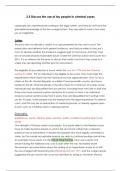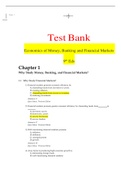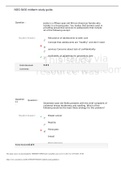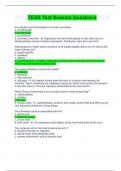Class notes
Criminology Unit 3 - 2.5 - Discuss the use of lay people in criminal cases
- Course
- Institution
Criminology Unit 3 - 2.5 - Discuss the use of lay people in criminal cases These notes helped me achieve 100% in the Unit 3 exam! Make sure to put these into your own words :)
[Show more]









